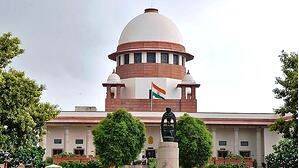

In recent developments, a significant bill has been introduced in the Rajya Sabha seeking to concentrate the authority to appoint members of the Election Commission solely within the purview of the central government. The government's objective behind this proposed legislation is to countermand the court's directive that the appointment committee should encompass the Chief Justice of the Supreme Court. Notably, in March of the previous year, a Constitution Bench presided over by Justice K M Joseph had recommended the formation of an impartial committee for the selection of election commissioners. This committee in Justice Joseph's view, should include the Chief Justice as one of its members. The impending legislation aims to uphold the government's influence in the appointment of Election Commission members. According to the proposed framework, the committee responsible for appointing commission members will consist of the Prime Minister, a Union Minister and the leader of the largest opposition party adhering to a time-tested pattern.
The imperative of preserving the impartiality and autonomy of the Election Commission prompted the recommendation that the committee featuring the Chief Justice of the Supreme Court should be vested with this responsibility. However, the introduction of the bill triggered vociferous objections from opposition members, primarily due to the omission of the Chief Justice from the appointment committee. The ensuing session of the Rajya Sabha was marred by a prolonged uproar on Thursday. Nevertheless, given the current political landscape, the government seems poised to navigate the bill's passage without significant hindrance.
The Election Commission occupies a pivotal position as one of the fundamental constitutional institutions in the country. Its organizational structure and mandates are well-defined. Opinions among legal scholars and experts are divergent concerning the necessity of involving the Chief Justice in the committee tasked with selecting its members. The three pillars of democracy—the Executive, the Judiciary and the Parliament—exist distinctly and cohesively, with defined boundaries that mitigate the prospects of inter-institutional conflicts or encroachments. While the constitution remains silent on the inclusion of a judicial representative in executive appointments, there is no prevailing complaint that the nation's Election Commission is compromising democratic norms or displaying bias in its conduct due to the absence of a judicial presence.
India has rightfully earned international acclaim for possessing one of the world's most exemplary electoral systems. The electoral landscape underwent a transformation under the stewardship of T N Sheshan during his tenure as Chief Election Commissioner. Prior to his incumbency, Election Commissioners operated under the advisories of the central government. It was only during Sheshan's era that the Commission truly wielded its powers resulting in substantial cleansing of the electoral arena, curbing irregularities, obstructions and contentions to a considerable extent.
Crucially, the authority to appoint members of the Commission squarely rests with the central government. This autonomy protects the Commission from undue influence and restrains it from exceeding the limits of its authority. In cases of alleged malpractice, legal recourse remains an option. Indeed, there is a pressing need for reform within the country's electoral landscape. The pervasive influence of illicit funding and coercive forces remains a significant challenge. Overhauling numerous provisions within the Representation of the People Act is a task requiring astute political decisions.
It is customary that allegations surrounding election outcomes and the impartiality of the Election Commission surface in the aftermath of electoral defeats. However, it is crucial to recognize that these occurrences are not inherently the Commission's doing. A comprehensive comprehension of the nuanced dynamics at play is indispensable.